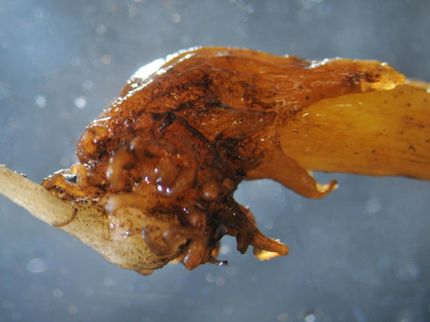Researchers complete draft genome sequence for cassava
Advertisement
A team of academic, government and industry researchers has completed a first draft of the cassava (Manihot esculenta) genome. The project is an important first step in accelerating the pace of research on this subsistence crop and addressing some of the many limitations that face cassava farmers around the world.
Cassava Brown Streak Disease, or CBSD, is currently the major threat to food security in some parts of Eastern Africa. In response to the urgency of this threat, and building upon the newly available cassava genome sequence, the Bill & Melinda Gates Foundation has awarded a $1.3 million grant to University of Arizona researchers who will lead an international consortium to develop a genome variation database that will provide breeding tools to aid farmers in improving cassava, with a special focus on increased resistance to the CBSD virus.
Steve Rounsley, associate professor in the School of Plant Sciences at the UA and a member of the BIO5 Institute, will coordinate the project that includes partners at the Institute for Genome Sciences, University of Maryland, Baltimore, the U.S. Department of Energy Joint Genome Institute (DOE JGI), and 454 Life Sciences, a Roche Company.
More than 61 million sequencing reads were generated and assembled into a draft genome that contains an estimated 95 percent of cassava genes. It is one of the first large genome projects to primarily use 454 Life Sciences' long-read sequencing platform, which enabled both improved quality of the draft, and its rapid generation.
The availability of the genome sequence enables the newly-funded project to study how cassava varieties differ from each other. Researchers will use next-generation technologies to sample many varieties of cassava and develop a large database of markers that can be used to identify genes involved in many important traits. The team will collaborate with researchers in Kenya, Uganda and Tanzania in applying these genetic markers toward identifying resistance to Cassava Brown Streak Disease. All of the information and tools the project develops will be freely available worldwide.


























































